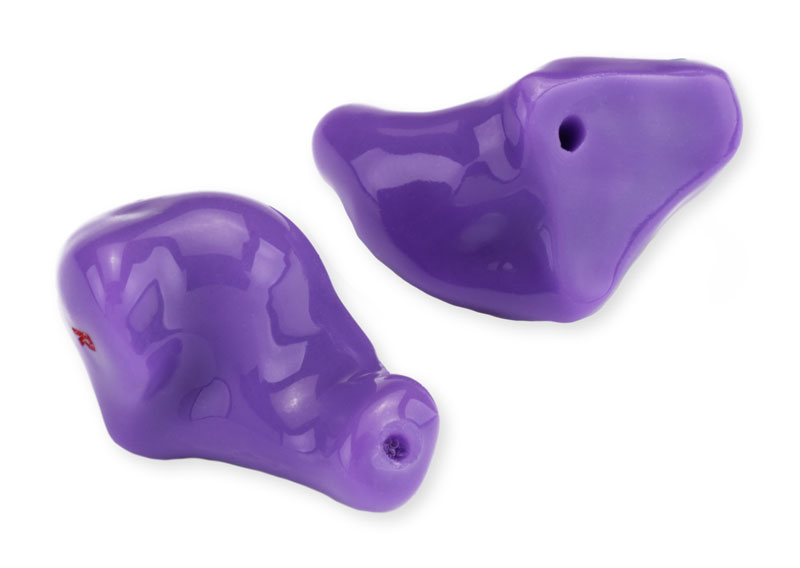
Sleep deprivation has a number of negative side effects, including memory problems, increased stress, chronic fatigue, irritability, weight gain and impaired problem solving. For many, the barrier to getting a good night’s sleep is noise disturbance. This can come from a variety of sources, such as city traffic, the snoring of a partner or the barking of a neighbor’s dog.
Sleep plugs can be used to drown out ambient noise, allowing you to get a good night’s sleep. They are ideal for blocking out obnoxious sounds that keep you from feeling rested, while allowing you to hear important sounds like the fire alarm. Custom molds provide superior comfort.
What Are Sleep Plugs Made Of?
Custom earmolds are generally made from one of three materials: acrylic, vinyl or silicone. Each has their pros and cons.
Acrylic
Acrylic molds have been around the longest. Hard and durable, they are resistant to shrinking and breakage, and are the easiest to repair or re-mold. Acrylic molds are simple to insert and remove and easily cleaned using mild detergents.
Their biggest disadvantage is their lack of flexibility. They can be difficult to place into narrow or small ear canals, especially those of children. Acrylic molds are also prone to sound leakage and feedback, particularly when the jaw is in motion (e.g., grinding one’s teeth).
Vinyl
Vinyl molds are made of polyvinyl chloride (PVC) and fall in the middle in terms of hardness. They are softer than acrylic molds, making them a better choice for children and older individuals because they are fairly easy to insert.
On the down side, vinyl molds tend to shrink, harden and discolor over time; they also need to be replaced more often. Because of the manufacturing process, which involves boiling in a saline solution, vinyl molds are not recommended for people with allergies.
Silicone
Silicone molds are the softest of all varieties. They are extremely flexible and comfortable, provide a tight seal for excellent sound quality and protection, and are very durable. They maintain their shape and size over time and are available in a variety of bright colors and designs, as well as flesh-colored tones.
There are also disadvantages to their flexibility and softness; silicone molds are difficult to insert, especially when new, and are a poor choice for individuals with soft or flaccid ears.
Call Comprehensive ENT at (804) 228-4480 for more information or to schedule an appointment.


